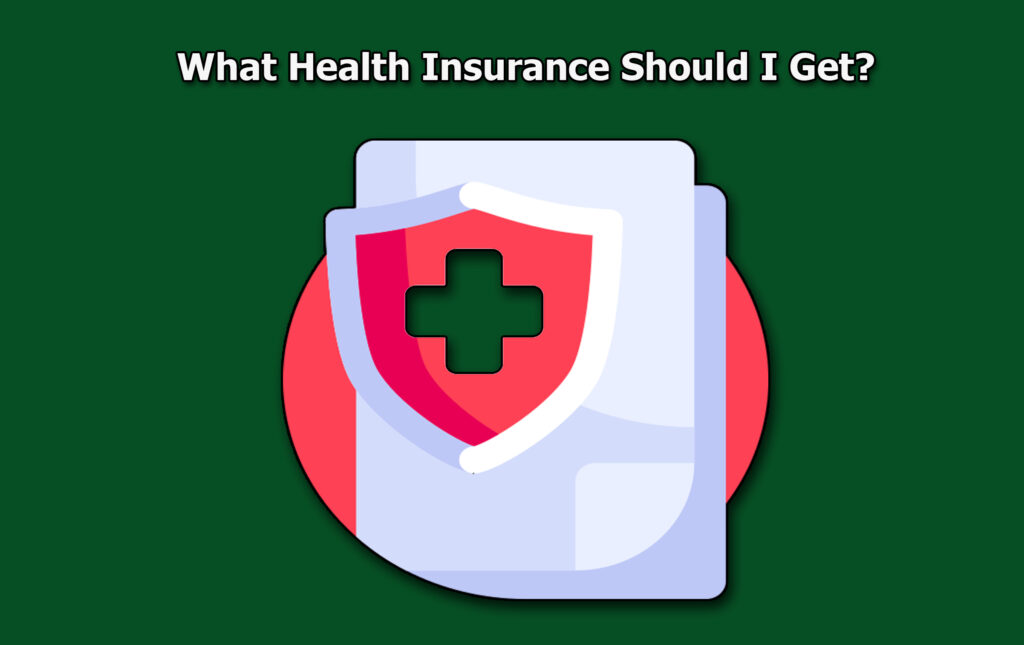What health insurance should I get? Selecting the right health insurance plan greatly impacts both your financial security and well-being. With so many options available, it can be overwhelming to determine which plan best fits your needs.

What’s more, various factors like cost, coverage, network of doctors, and specific health requirements all play a role in selecting the ideal policy.
Health insurance is designed to protect you from high medical expenses by covering a portion of your healthcare costs. However, different plans offer different levels of coverage, and some may be better suited for individuals, families, or specific health conditions.
Different Types Of Health Insurance Plans
When selecting a policy, the first step is to understand the types of plans available. Each plan has its own specific features that cater to different healthcare needs and financial situations.
Preferred Provider Organization Plans
PPO plans offer policyholders more flexibility in choosing healthcare providers and do not require referrals for specialists. Also, they allow both in-network and out-of-network coverage, though out-of-network care is more expensive. What’s more, they:
- Have higher premiums than HMO plans
- Need no referral needed for specialists
- Provide greater provider flexibility
Health Maintenance Organization (HMO) Plans
HMO plans require members to select a primary care physician (PCP) who will coordinate their healthcare needs. Referrals are needed to see specialists, and coverage is limited to doctors and hospitals within the HMO network.
- Lower premiums and out-of-pocket costs
- Requires referrals for specialist visits
- No coverage for out-of-network care except in emergencies
Exclusive Provider Organization (EPO) Plans
EPO plans combine elements of both HMO and PPO plans. They do not require referrals for specialists but only cover in-network care. Also, they:
- Have lower premiums than PPOs but higher than HMOs
- Need no referral needed for specialists
- Also have no out-of-network coverage except emergencies
Point of Service (POS) Plans
POS plans require members to choose a primary care physician and get referrals for specialists. However, they offer some coverage for out-of-network care at a higher cost. They:
- Balanced flexibility between HMO and PPO
- Require referrals but allows out-of-network visits
- Have moderate premiums and out-of-pocket costs
Key Factors To Consider When Choosing Health Insurance
Once you understand the types of plans, the next step is evaluating key factors to choose the best option for your situation.
- Your Healthcare Needs: You mustconsider your current health status, medical history, and anticipated healthcare needs. If you frequently visit specialists or need regular prescriptions, a plan with broader coverage may be ideal.
- Monthly Premiums and Out-of-Pocket Costs: Balancing affordability and coverage is crucial. Look at the monthly premiums, deductibles, copayments and coinsurance.
- Network of Healthcare Providers: If you have preferred doctors, hospitals, or specialists, check whether they are in-network for the plans you are considering.
- Prescription Drug Coverage: If you take medications regularly, review the plan’s list of covered drugs to ensure your prescriptions are included and affordable.
- Additional Benefits: Some plans offer additional perks like dental, vision, mental health services, and wellness programs. You can determine whether these extras are beneficial for your overall healthcare needs.
Employer-Sponsored vs. Individual Health Insurance
Health insurance can be obtained through an employer or purchased individually. Here are noticeable differences between the two:
Employer-Sponsored Health Insurance
Many employers offer health insurance plans with group rates, making them more affordable than individual plans. Moreover, their benefits often include lower premiums, employer contributions, and access to better coverage options.
Individual Or Marketplace Plans
If you are self-employed or your employer does not offer coverage, you can still purchase a plan through the Health Insurance Marketplace. Additionally, they offer more plan choices, available to those without employer coverage. However, they do have higher premiums, where income-based subsidies may apply>
Government-Sponsored Health Insurance Options
For individuals who meet specific eligibility criteria, alternative health insurance options one may consider are government-sponsored health insurance programs.
Medicare (For Individuals 65 And Older Or With Disabilities)
This programs includes hospital insurance (Part A), medical insurance (Part B), and prescription coverage (Part D)
Medicaid (For Low-Income Individuals And Families)
On the other hand, this program provides individuals with free or low-cost health coverage based on income levels
Children’s Health Insurance Program (CHIP)
This option covers children from low-income families who do not qualify for Medicaid.
Frequently Asked Questions
What Is The Best Health Insurance Plan For Young Adults?
Young adults often benefit from lower-cost, high-deductible plans like HMO or PPO plans.
Can I Change My Health Insurance Plan At Any Time?
No, changes to health insurance plans typically occur during open enrollment periods. However, qualifying life events like marriage, childbirth, or job loss may allow you to change plans outside of the enrollment period.
How Do I Qualify For Government Health Insurance Programs?
Eligibility for Medicare, Medicaid, and CHIP depends on factors such as age, income, disability status, and household size. You can also check eligibility criteria through official government websites.



